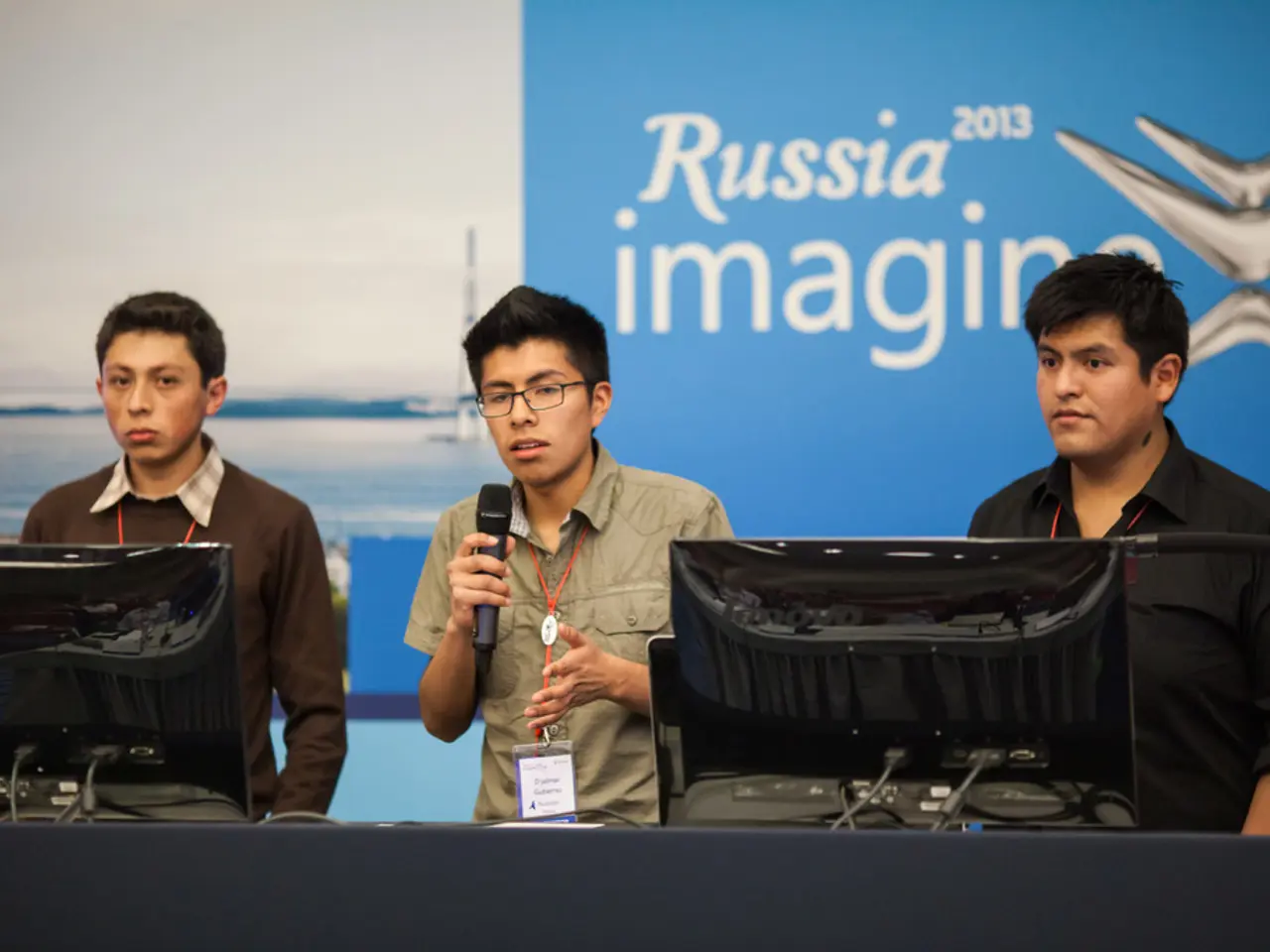Escalation in Autumn: Russian-Ukrainian Conflict Shows Signs of Shift
The ongoing conflict between Ukraine and Russia continues to dominate international headlines, with both sides showing no signs of ceasing hostilities. Here are the latest developments and negotiations in the ongoing crisis.
The U.S. Department of Defense has approved the sale of aircraft munitions and equipment to Ukraine, worth $825 million, as part of its increased support for the war-torn nation. The U.S. has also started to more actively provide weapons to Ukraine, including offensive ones. However, Ukrainian President's Chief of Staff, Andriy Yermak, stated that no pressure from the American side was being applied over any territories.
Plans for a trilateral meeting of the US, Russian, and Ukrainian presidents, followed by bilateral talks between the Russian and Ukrainian leaders, have been announced. The U.S. President Donald Trump and Russian President Vladimir Putin met on August 15 in Alaska and on August 18 with Ukrainian President Vladimir Zelensky and leaders of several European countries. However, Russian President's assistant Yuri Ushakov stated there has been no concrete agreement between Putin and Trump on a trilateral meeting.
One potential solution could be the deployment of peacekeepers from a third party, neither European, American, nor Chinese. The U.S. has provided support for this idea, but Russia has categorically opposed the presence of NATO troops on Ukrainian territory. Ukraine and Europe, on the other hand, have proposed considering the possibility of deploying European troops as part of a "coalition of the willing."
Russia has demanded a territorial exchange in the Donetsk region, including roughly six thousand square kilometers and fortified areas in cities like Slaviansk, Kramatorsk, Konstantinovka, and others. This demand has been met with resistance from Ukraine, which has proposed a neutrality modeled after Austria or Sweden as a solution to the crisis.
Negotiations have focused on humanitarian issues and political status of territories, but no comprehensive peace settlement has been reached yet. The Financial Times reported that Trump supposedly supported Putin's idea of deploying Chinese troops as peacekeepers at the August 18 meeting, but a high-ranking representative of the American president denied this information.
There is a possibility of aligning positions and finding common ground regarding international guarantees for Ukraine. Territorial negotiations are ongoing, with both sides employing different formats of maneuvering while discussing conditions.
The war between the two sides continues to take a heavy toll on civilians, with the destruction of a five-story building in Kyiv on August 28 resulting in the deaths of 25 people. Gerasimov, the Chief of the General Staff, stated that Russia would continue the war and indicated the percentages of territory in four regions that it controls.
Several countries, including Turkey, the USA, Germany, France, Italy, the UK, Finland, Poland, and the EU, have made efforts to support peace talks in the Ukraine crisis. Turkey has hosted high-level meetings and proposed further negotiations in Istanbul. Key approaches proposed include demands for a ceasefire, security guarantees, Ukraine's neutrality modeled after Austria or Sweden, and rejecting territorial changes by force.
In a move to further support Ukraine, the U.S. State Department has approved the supply of Patriot missile defense systems worth $8.5 billion to Denmark for subsequent transfer to Ukraine.
As the conflict continues, the international community remains hopeful that a peaceful resolution can be found and that the loss of life in Ukraine can be minimized. The ongoing negotiations offer a glimmer of hope for a lasting peace in the region.
Read also:
- Lu Shiow-yen's Challenging Position as Chair of the Chinese Nationalist Party (KMT) Under Scrutiny in Donovan's Analysis
- EU Set to Make Decisions Regarding Georgia's Future
- Government will initiate the second phase of combined inoculation in 11 states deemed high-risk, scheduled from September 11 to 14.
- Contest Between Palmer and Frohnmaier: Expert Predicts No Clear Winner and a Flawed Structure








